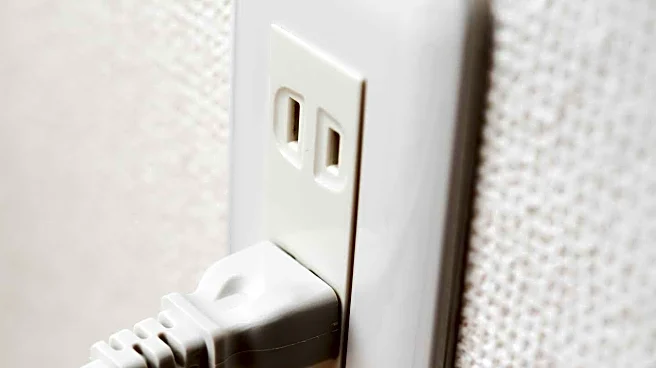What's Happening?
CNET has highlighted a simple yet effective strategy for reducing energy bills: unplugging electronic devices when not in use. This approach addresses the 'phantom load'—the energy consumed by devices even when they are turned off but still plugged in. The article suggests that this habit, combined with other energy-saving practices like using ceiling fans and energy-efficient appliances, can significantly lower utility costs. According to the Department of Energy, standby power accounts for 5% to 10% of residential energy use. The Natural Resources Defense Council estimates that reducing the load from always-on devices could save consumers $8 billion annually and prevent 44 million metric tons of carbon dioxide pollution.
Why It's Important?
With energy costs rising, many Americans are seeking ways to reduce their utility bills. The practice of unplugging devices not only helps in cutting costs but also contributes to environmental conservation by reducing carbon emissions. This strategy is particularly relevant as nearly 8 in 10 adults express stress over utility bills. By adopting these measures, households can achieve financial savings and contribute to broader environmental goals. The potential savings and environmental benefits underscore the importance of energy efficiency in daily life.
What's Next?
Households may increasingly adopt smart plugs and energy-efficient appliances to automate and enhance their energy-saving efforts. As awareness grows, there could be a shift towards more sustainable living practices, supported by technological advancements and government incentives for energy efficiency.
Beyond the Headlines
The emphasis on unplugging devices highlights a broader cultural shift towards sustainability and conscious consumption. This trend may influence consumer behavior, encouraging more mindful use of technology and resources.












